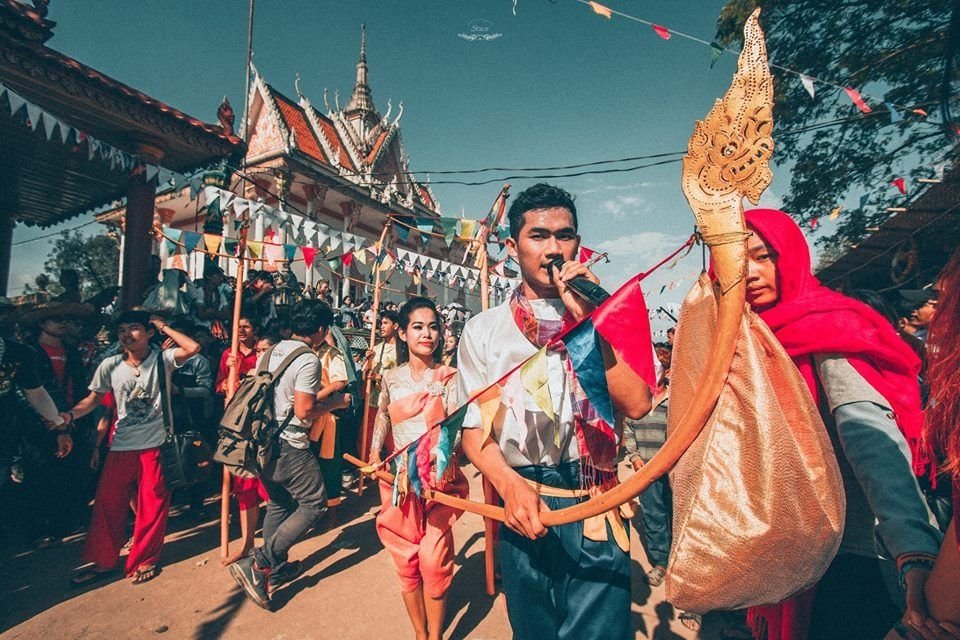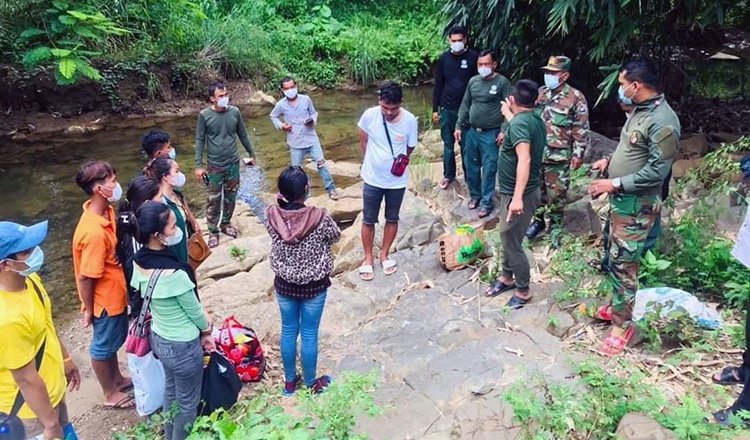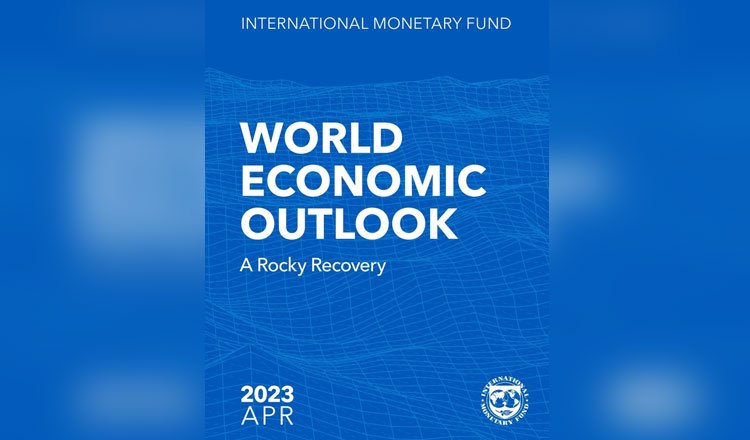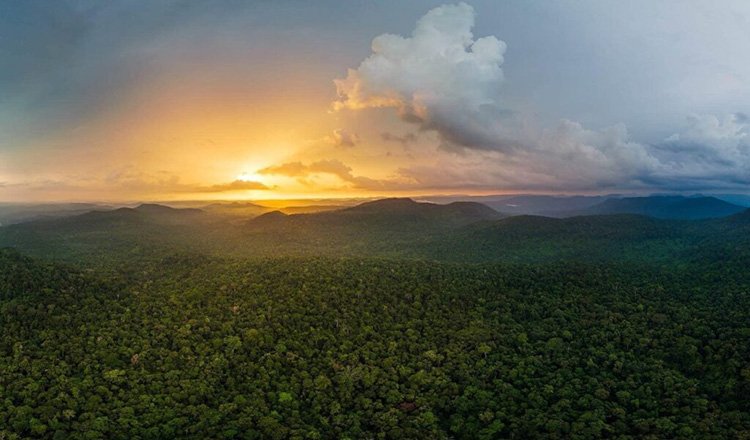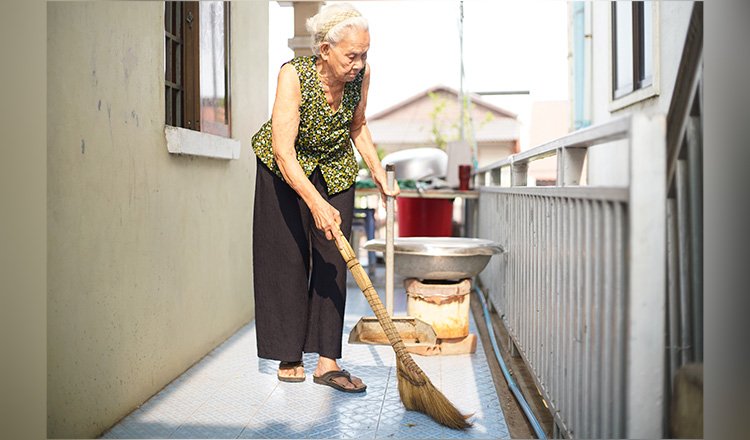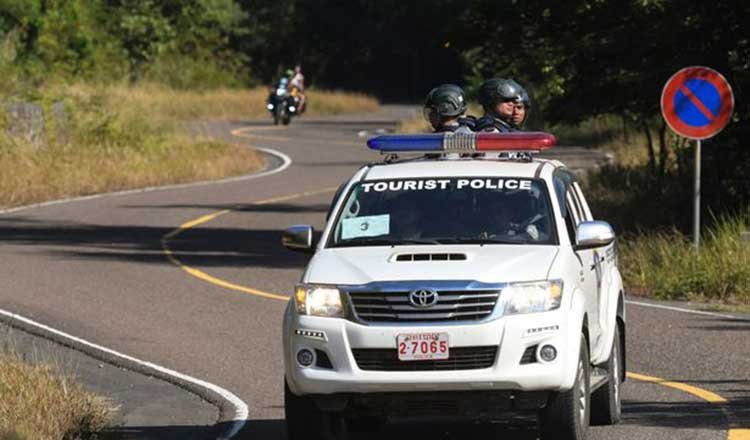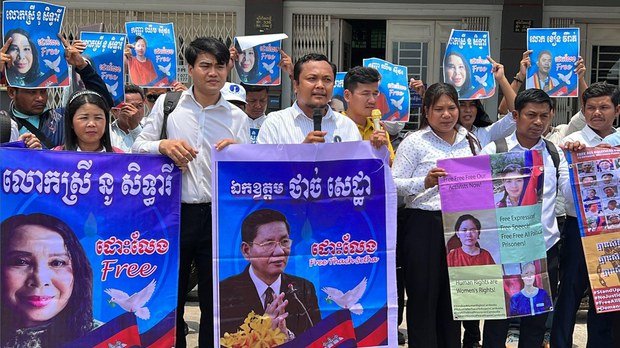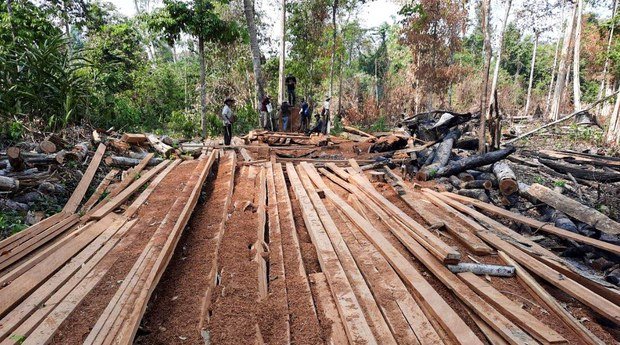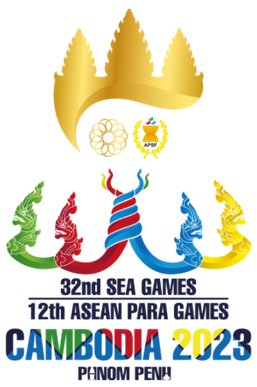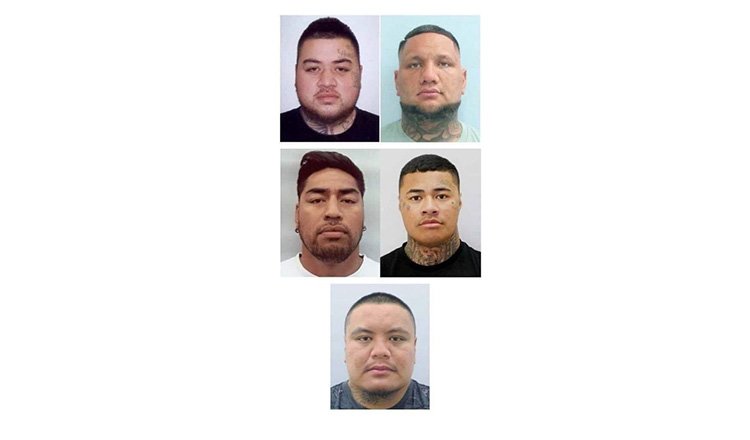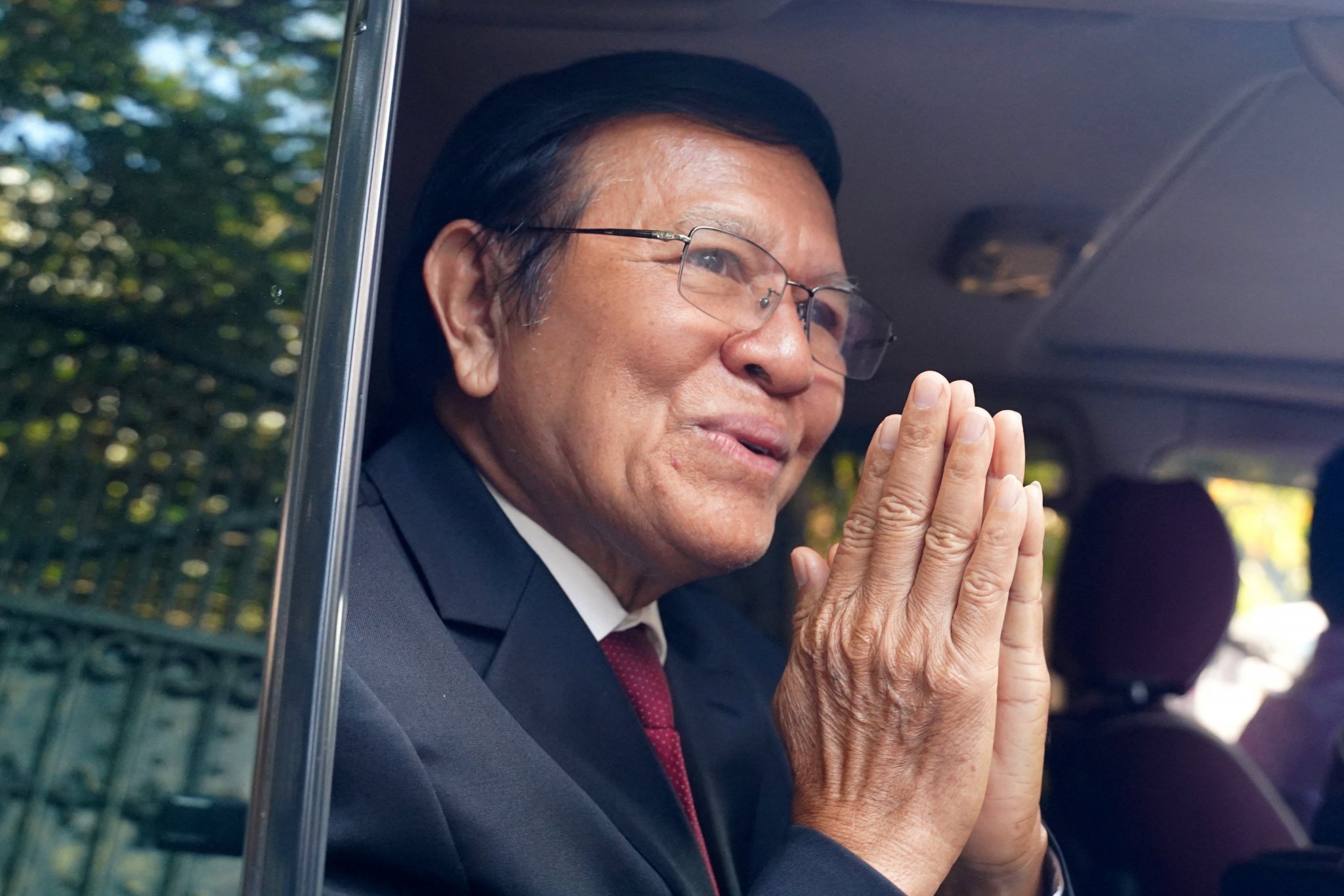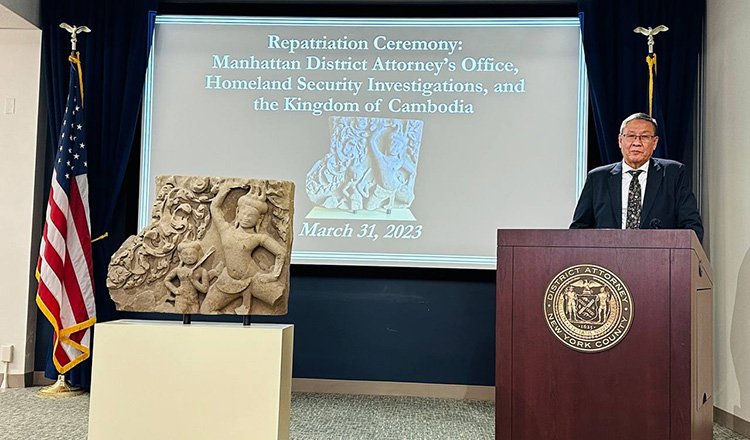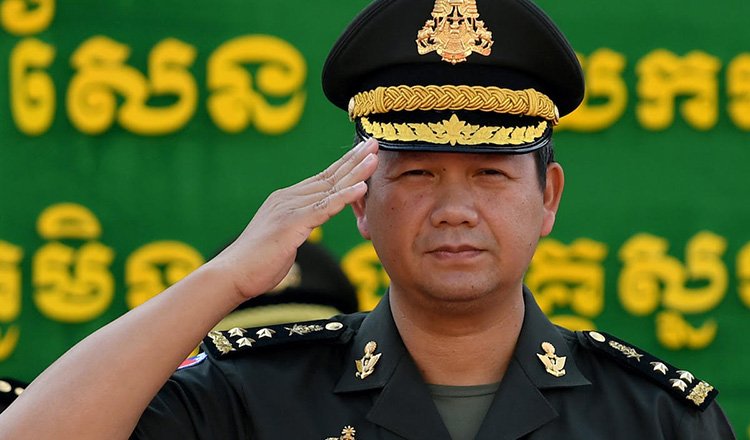-
Posts
15,817 -
Joined
-
Last visited
Content Type
Events
Forums
Downloads
Quizzes
Gallery
Blogs
Everything posted by geovalin
-
PHNOM PENH, April 15 (Bernama-Xinhua): Hundreds of thousands of Cambodian migrant workers left the capital Phnom Penh since last week for their home provinces to celebrate the traditional New Year holiday, which started from Friday and ends on Monday. Phnom Penh governor Khuong Sreng said that on the advice of Prime Minister Samdech Techo Hun Sen, the Phnom Penh City Hall has arranged 345 city buses to ferry people from the capital to provinces and vice versa for free-of-charge from April 13-17, reported Xinhua. "The move is to prevent private bus companies and taxi drivers from raising fees and to reduce travel costs for people who visit their hometowns during the New Year holiday period," he said during a visit to a city bus station. The city bus fleet includes 98 Yutong "smart" buses donated by the Chinese government in July 2017. read more https://www.thestar.com.my/aseanplus/aseanplus-news/2023/04/16/cambodians-flock-to-hometowns-to-celebrate-traditional-new-year-holiday-weekend
-
Elaborate event criticized as costly use of national budget. Prime Minister Hun Sen and his youngest son kicked off a lavish Khmer New Year celebration at the Angkor temples complex on Friday as several thousand volunteers set a world record for the largest display of origami hearts. The arrangement of more than 3.9 million origami hearts at the UNESCO World Heritage Site in Siem Reap province was organized by Hun Many, the chairman of the Union of Youth Federations of Cambodia and a parliamentary candidate in the upcoming July general election. “Cambodia has between 16 and 17 million people. We can make about 4 million hearts, so if China and India can make more hearts then the committee must consider,” the prime minister said, referring to the Guinness World Records officials who determine whether a record has been set. “They must think about the percent of the country’s population.” The Angkor Sangkran 2023 celebration near Angkor Wat temple – Cambodia’s top tourist attraction – has been decorated with lights, souvenir shops, food stalls, concerts and floating boats. Volunteers from the Union of Youth Federations of Cambodia, which is made up of supporters of the ruling Cambodian People’s Party, did much of the work for the event. But the festival hasn’t done anything to promote the country’s culture, political analyst Kim Sok told Radio Free Asia. Money was spent out of the national budget and civil servants were put to work just to make people happy ahead of the election, he said. “Hun Sen doesn’t think about the country and its people. He organized the event for his face and for his family,” he said. Hun Many is currently a lawmaker from Kampong Speu province. Hun Sen’s eldest son, Hun Manet, has also been named a parliamentary candidate. He is currently the deputy commander-in-chief of the Royal Cambodian Armed Forces and is expected to eventually succeed his father as prime minister. Left: A scene from the Angkor Sangkran festivities. Right: Cambodian Prime Minister Hun Sen and his wife, Bun Rany, look at part of the world’s largest display of origami hearts at the Angkor Sankram festival on April 14, 2023. Nearly 4 million folded hearts were created at the Angkor Wat temple ahead of the new year. Credit: Hun Sen Facebook page Another Guinness record attempt A member of the Union of Youth Federations of Cambodia, Kean Savong, told RFA that another world record will be attempted at the festival on Saturday, when thousands of people will gather to do the Madison line dance. “People are volunteers so we don’t spend much money,” he said. A villager from Siem Reap province, Siem Vann, said Angkor Sangkran will make people happy for a short time but won’t really do anything to help the country when so many people are facing financial difficulties, are indebted to banks or are considering moving abroad to find work. He urged the government to think about increasing local markets for farmers and resolving political conflict. “The government should use the budget to appropriately help the poor and restore democracy so that people will have freedom,” he said. Siem Reap authorities wouldn’t elaborate on how much the event will cost, but the Union of Youth Federations of Cambodia said private donations from rich businessmen known by the honorific “Okhna” will cover most of the expenses. Translated by Samean Yun. Edited by Matt Reed. https://www.rfa.org/english/news/cambodia/hun-sen-khmer-new-year-04142023163431.html Copyright © 1998-2020, RFA. Used with the permission of Radio Free Asia, 2025 M St. NW, Suite 300, Washington DC 20036.
-
As Cambodian families usher in Khmer New Year with their loved ones, those of hundreds of migrant workers do not even know if they will ever be able to see them again. The National Committee for Counter Trafficking (NCCT) has asked Cambodian embassies to help trace more than 600 migrant workers whose families claim have gone missing abroad. Chou Bun Eng, a secretary of state of the Ministry of Interior and vice-chairwoman of the NCCT, said yesterday that “We are looking for cooperation with countries where Cambodians go to work, to help provide information on these migrants whose families are unable to contact.” “I think it will be a difficult task because some of the workers may have gone to work illegally and used different names or do not have documents of identification with them,” she said. Bun Eng said that some of the “missing” migrants could also be working on ships and their families are unable to contact them because they are out at sea for long periods of time and have no means of communication. read more https://www.khmertimeskh.com/1272463/missing-cambodians-families-of-over-600-migrant-workers-unable-to-contact-them/
-
The International Monetary Fund (IMF) expects Cambodia to be among the best-performing economies in East Asia and the Pacific this year alongside the Philippines and Vietnam. In its annual World Economic Outlook released in Washington Tuesday, the IMF said the Philippine economy was forecast to expand 6.0 percent – the fastest pace among the 15 members of the Regional Comprehensive Economic Partnership (RCEP) agreement. Cambodia ranked equal second with Vietnam, with both economies projected to grow 5.8 percent. Other projections were 5.2 percent for China, 5.0 percent for Indonesia, 4.5 percent for Malaysia, 4.0 percent for Laos, 3.4 percent for Thailand, 3.3 percent for Brunei, 2.6 percent for Myanmar, 1.6 percent for Australia, 1.5 percent for both South Korea and Singapore, 1.3 percent for Japan and 1.1 percent for New Zealand. read more https://www.khmertimeskh.com/501272841/cambodia-among-three-most-robust-rcep-economies-this-year-says-imf/
-
The move is the latest in controversy with Thailand over name of the martial art. At Prime Minister Hun Sen’s behest, Cambodia has granted a Brazilian kickboxer and his wife citizenship for promoting Kun Khmer, the national sport, in the latest development in a controversy with Thailand, which calls the sport Muay Thai. Hun Sen also gave a U.S.$20,000 sponsorship to Thiago Teixeira, 34, who with his wife Roma Maria Rozanska-Steffen, an American citizen, became naturalized Cambodian citizens by King Norodom Sihamoni through a royal decree dated April 11, the Phnom Penh Post reported. The announcement came after the World Muay Thai Organization, or WMO, stripped Teixeira of a middleweight title that he won at the Apex Fight Series on April 1 in Germany, during which he waved Cambodia’s flag. Teixeira had said he wanted to represent Kun Khmer instead of being a Muay Thai fighter, despite training in the Thai sport for years. The two martial art forms — the most popular sports in their respective countries — are nearly identical and involve punching, kneeing and kicking opponents. But Cambodians argue that the sport originated from their culture, while Thais say it belongs to them. Cambodia has removed Muay Thai from a list of sports included in this year’s Southeast Asia Games, replacing it with Kun Khmer, amid a larger push for the national sport to gain international recognition. The biennial sports event will be held in the Cambodian capital of Phnom Penh on May 5-17. Political ploy? Critics said the prime minister was using the issue to try to increase his popularity among Cambodian voters ahead of July’s general election. Legal expert Vorn Chan Lout said Cambodia should be extra cautious before granting citizenship to foreigners because the law requires them to live in the country for three years and understand its culture to be eligible. “Politicians are smart to take advantage of events, but the most important thing is the government needs to have a long-term vision in order to pay gratitude to all athletes,” he said. Cambodia’s Citizenship Law allows foreigners to acquire citizenship through marriage and naturalization, though they must stay in the Southeast Asian nation for three years. Am Sam Ath of Licadho said Hun Sen’s government should support Cambodia’s home-grown martial arts athletes rather than foreign ones. “I urge the government to pay attention to Kun Khmer and to encourage athletes with sufficient training so they are able to fight,” he said. Cambodian kickboxers have complained that they are underpaid in the sport. Veteran Kun Khmer fighter Vong Noy said he stopped fighting because his earnings from the sport were not enough to support his family or pay medical bills for injuries he sustained during fights. “I stopped fighting now because I have been fighting for many years,” he wrote on Facebook. “I got famous, but I am facing financial issues, and I’m afraid that I will become disabled and not make enough money to raise my children.” RFA could not reach Teixeira for comment, but he told local media during a press conference in Phnom Penh after signing a contract with the World Champion Kun Khmer Club, that he already considered Cambodia his home and he would help promote Kun Khmer to the rest of the world. Translated by Samean Yun for RFA Khmer. Edited by Roseanne Gerin and Malcolm Foster. https://www.rfa.org/english/news/cambodia/brazilian-kickboxer-04122023165736.html Copyright © 1998-2020, RFA. Used with the permission of Radio Free Asia, 2025 M St. NW, Suite 300, Washington DC 20036.
-
Despite concerns over the ability of Cambodia to reintroduce tigers which have gone extinct, the Ministry of Environment says Cambodia now is ready and will soon import the first group of the big cats from India. However, a conservation NGO working on the project said the Indian government certainly will not provide tigers until they are assured that there will be a safe environment for them in Cambodia. The last tiger to be spotted in Cambodia was photographed by a camera trap in 2007 in the Srepok Wildlife Sanctuary in Mondulkiri province. Wildlife experts declared the animal extinct in the country in 2016. Speaking during a press conference to launch the Zero Snare Campaign Phase II in Pursat province on Friday, Ministry of Environment Secretary of State Neth Pheaktra said Cambodia would “soon” be importing tigers from India to reintroduce in Cambodia’s protected area. read more https://www.khmertimeskh.com/501270535/tiger-concerns-cambodia-doing-its-best-to-make-a-home-for-indian-big-cats/
-
An average Cambodian can now live six years longer, said the Ministry of Health and the World Health Organisation (WHO). A joint press statement by the Ministry of Health and WHO on Friday said Cambodia’s life expectancy has increased to 76. Cambodia has made significant progress in its health sector and this has contributed to the well-being of the people. “Life expectancy has constantly been on a rise in Cambodia, and in 2021 and 2022, Cambodia’s life expectancy was 76 years old,” the statement said. In 2020, the life expectancy of a Cambodian was 70.42 years. In March, the government held talks with WHO, focused on strengthening the health system toward Universal Health Coverage and expanding social protection, both of which are vital to achieving the targets set in Cambodia’s Sustainable Development Goals. Health Minister Mam Bun Heng said Cambodia will continue to boost its primary healthcare with the collaboration of WHO to secure a healthy and safe future for all Cambodians. read more https://www.khmertimeskh.com/501270542/life-expectancy-increases-to-76/
-
A British man was found face down in a sewer in a residential area not usually frequented by tourists in Kampot around 90 miles from the capital of Phnom Penh, Cambodia The 30-year-old man, who is thought to be from Bristol, was found by shocked locals in Kampot province, around 90 miles from the capital Phnom Penh on Thursday afternoon. He was wearing a pair of black trainers and black shorts but did not have anything on his upper body. Locals tried to rouse him but he reportedly had no signs of life. Pictures show residents had pulled him up onto the grass next to the drainage ditch and turned him onto his back. He was surrounded by thick grass several metres from the nearest road. Police arrived shortly after he was found at around 4pm local time. They pronounced him dead at the scene and his body was taken away for a police post-mortem examination. Shocked resident Bong Chea, one of the neighbours who gathered round his body said: “The man was dead when we found him. Somebody moved him to check if he was alive and try and wake him up. He was already dead. read more https://www.khmertimeskh.com/501270042/british-national-30-found-dead-lying-face-down-in-a-sewer-in-cambodia-shrouded-in-mystery/
-
Opposition activists gathered to demand release of arrested party officials. About 100 activists with the main opposition Candlelight Party started a protest on Friday in Phnom Penh – their first demonstration in several years – but police quickly confronted and dispersed them, claiming they were causing a traffic jam. The activists gathered in front of the party’s headquarters to demand the release of recently arrested party officials. The city had refused to give them permission to protest at Freedom Park, the location of previous rallies against Prime Minister Hun Sen’s government, the party’s Youth Movement President Thorn Chantha said. Party organizers have faced threats and harassment as they prepare for July’s parliamentary elections. Party Vice President Thach Setha, for example, was arrested in January on charges of writing false checks. Her lawyers filed another request for bail earlier this week. “We also would like the political space to be opened ahead of the election to show the international and national community is acceptable,” said Thorn Chantha. “There should be fair competition. While other parties have the right to do everything, the Candlelight Party is being restricted.” Separately, Thorn Chantha said he was assaulted on Thursday by two unknown people after he ordered coffee. He said he was struck with a baton on his shoulder. The assailants then followed him as he was fleeing in his car and smashed his driver’s window with a rock, he said. “This violence is to intimidate opposition party activists who dare to conduct political activities ahead of the election,” Thorn Chantha said. ‘People understand their rights’ Police from the city’s Sen Sok district pushed the protesters away from the party’s headquarters, and activists eventually agreed to move off the street and into the party's headquarters, said Rong Chhun, a labor leader who recently became the party’s vice president. “We were protesting on the pavement, but the traffic was flowing. The accusation is unjustified,” he said. “This shows that they restrict freedom of speech and assembly.” There was no violence between police and protesters, he said. District officials invited him to a meeting on Monday to discuss the demonstration, which he told Radio Free Asia he would attend. But he urged NGOs and diplomats to monitor what takes place. “This was yet another image of repression to scare the youths and to scare people into not expressing themselves,” he said. “But people understand their rights and the law now. The more they scare us, the more people will join us.” Translated by Samean Yun. Edited by Matt Reed and Malcolm Foster. https://www.rfa.org/english/news/cambodia/candlelight-party-protest-04072023163504.html Copyright © 1998-2020, RFA. Used with the permission of Radio Free Asia, 2025 M St. NW, Suite 300, Washington DC 20036.
-
PHNOM PENH, Cambodia -- Nineteen Japanese men detained in Cambodia in January on suspicion of taking part in organized phone and online scams will be deported to their homeland, a Cambodian immigration police officer said Friday. Arrangements for their return are being made by the Japanese Embassy in Cambodia, but so far no date has been set, Immigration Police spokesperson Gen. Keo Vanthan told The Associated Press. Japanese public broadcaster NHK reported Friday that Tokyo police have obtained arrest warrants for the 19 Japanese on suspicion of running phone scams from Cambodia targeting people in Japan. NHK said Cambodian authorities who searched the men’s hotel rooms “discovered a list of Japanese citizens believed to be targets in a fraud scheme.” The 19 were taken into custody in the southern city of Sihanoukville on Jan. 24 and sent to the capital, Phnom Penh, where they were held after investigation by the interior ministry. read more https://abcnews.go.com/Technology/wireStory/cambodia-deport-19-japanese-cybercrime-scam-suspects-98427132
-
PHNOM PENH — After working for two years as a shoe trimmer at Pontus Footwear factory in Takeo province, Kem Saory could not endure the working conditions any longer. He decided to create a union with nine colleagues in order to demand improvements in accordance with their labor rights. Kem Saory, 37, knew he was risking his $200-per-month job from the factory, which he needed to support his wife, eight-year-old son and baby girl, but hoped that the Taiwanese-owned supplier of international shoe brands such as Puma and Timberland would respond positively. He announced in a letter on Dec. 1, 2022, to management at the factory, located around 70 kilometers south of the capital Phnom Penh, that he was the head of a new, independent union. About three weeks later he and three other unionists were being let go by the company, which said in a letter dated Jan. 24, 2023, and seen by VOA Khmer, only that their fixed-duration contracts expired and were not being renewed. “It is certain that the factory doesn’t want our independent union to exist in the factory. That’s why they rejected it and fired us,” Kem Saory told VOA Khmer, adding that the six other unionists feared they would be the next to be let go. A spate of firings of unionists A labor rights group said Pontus was one of three garment factories in recent months that have forced out a total of 20 workers for attempting to unionize. The others were T-Win Co. Ltd. in Takeo province, which reportedly supplies international brands Skechers, Nike and 5.11 Inc., and Caswell Apparel Co., Ltd. in Phnom Penh. Another ongoing dispute concerns three workers who were fired in 2022 after attempting to form a union at Cinlon International factory in Kampong Speu province. The Chinese-owned factory produces bags for the California-based brand Clevermade. The Ministry of Labor instructed the company in July 2022 to reinstate the workers, but labor activists said that the factory failed to do so. “Freedom of creating local unions has been a challenge for workers lately,” Pav Sina, president of the Collective Union of Movement of Workers (CUMW), said in a statement on 15 Feb. “[The workers] formed a union within the company for the rights and freedoms of workers as stated in Cambodian law,” he said, adding that union founders are protected by law, “[h]owever, the companies do not care about the law.” The recently dismissed unionists jointly submitted letters of complaint on March 6 to the Ministry of Labor requesting intervention in order to force factory owners to rehire them and to respect the law. Labor Ministry spokesman Heng Sour told VOA Khmer that the ministry was assessing the complaints and urged this reporter to be skeptical of the complaints of individual labor activists as they are “not the authority.” Kaing Monika, deputy secretary-general of Garment Manufacturers Association in Cambodia, referred questions about the disputes to the ministry, adding,“Any action on non-compliance [with labor laws], if any, would be dealt with by the ministry.” FILE - Employees work at a factory supplier of the H&M brand in Kandal province, Cambodia, December 12, 2018. read more https://www.voacambodia.com/a/firings-of-unionists-at-garment-factories-raise-concern-over-cambodia-s-labor-rights-/7037641.html
-
They observed transport trucks, armed groups of people and evidence of 219 fallen trees. Forest protection activists found more than 200 fallen trees that had been illegally cut down in a vast protected area of northern Cambodia that showed signs of around-the-clock operations, transport trucks, motorcycles and armed security. Activists with the Prey Lang Community Network for Preah Vihear province traveled through the area for four days and three nights in late March. Prime Minister Hun Sen has promised publicly that he would take action to prevent illegal logging in Prey Lang Wildlife Sanctuary, which covers land in Preah Vihear, Stung Treng, Kampong Thom and Kratie provinces. He’s even blamed Cambodia’s poor in recent years for the country’s growing loss of forest cover. But activists have said that government authorities have done nothing to prevent supporters of the ruling Cambodian People’s Party from illegally exporting timber to neighboring Vietnam, a major buyer of luxury hardwood. A 2020 survey by researchers at Denmark’s University of Copenhagen showed that Cambodia had lost 26 percent of its tree cover, equivalent to about 5.7 million acres, since 2000, according to satellite imagery Moving timber day and night Activists told Radio Free Asia on Monday that logging transport trucks and motorcycles seen last month carried an identifying logo from the Phnom Penh-based Macle Logistics (Cambodia) Co., Ltd. A Prey Lang community network member, Srey They, said the perpetrators brought wood out of the forest day and night in an area where forest crimes are on the rise. Groups of between five and 10 people – some of them armed – were seen cutting and transporting timber in Preah Vihear’s Rovieng district, he told RFA. “It is very sad that the government has established the protected area, but there are still perpetrators of deforestation for companies,” Srey They said. Illegal logging continues in Cambodia because of compliant government officials, Cambodian Youth Network project coordinator Oath Latin said. “This involves corruption between the timber traders, the perpetrators and the officers who are stationed around the Prey Lang checkpoint,” he said. RFA was unable to contact the director of the Department of Environment, Song Chan Socheat, and the spokesman for the Ministry of Environment, Neth Pheaktra, on Monday, calling several times without an answer. Translated by Sok Ry Sum. Edited by Matt Reed and Malcolm Foster. https://www.rfa.org/english/news/cambodia/prey-lang-logging-04042023171405.html Copyright © 1998-2020, RFA. Used with the permission of Radio Free Asia, 2025 M St. NW, Suite 300, Washington DC 20036.
-
PHNOM PENH — With elections just a few months away, young Cambodians have a message for their government: "We are hungry for truthful and independent news." More than 10 youth organizations in the country have petitioned Cambodia's Ministry of Information calling for authorities to reinstate independent media outlet Voice of Democracy. The outlet was closed on February 13, on the orders of Prime Minister Hun Sen over its coverage of Cambodian aid to help Turkey after that nation's devastating earthquake in early 2023. Authorities revoked Voice of Democracy's license and blocked access inside Cambodia to its English and Khmer-language news websites. The closure has left Cambodians without a reliable source of independent news, the youth organizations have said. FILE - Supporters of online media outlet Voice of Democracy (VOD) hold placards in front of VOD office in Phnom Penh, Feb. 13, 2023. Members of the organizations gathered at the Information Ministry in the capital, Phnom Penh, on Friday to deliver their petition. The groups included the Khmer Youth Capacity Development, Youth for Social Development and Democracy, and Youths for Awareness Club. Ke Chamroeun, 28, who acted as a representative for the groups, told reporters that while Cambodia has several media outlets, not all of them are active in covering news that is beneficial to audiences. "Most of them [media outlets] only disseminate propaganda rather than the social issues which need a solution," he said. Arn Sreyoun, 21, said most media in Cambodia fail to report sensitive stories including those focused on politics, corruption, deforestation, and land disputes. "We need an independent media outlet to report about those issues," said the Phnom Penh-based university student. Soeun Makara, who also joined the groups presenting the petition to the ministry, told reporters, "We are hungry for truthful and independent news." "Providing untruthful news to the youths is like killing their hearts," said the 27-year-old. Stressing the importance of the media when elections are scheduled for July 23, the petition said, "We think that independent media will play a very crucial role in ensuring the free and fair process of the upcoming national election." The petition cited the Cambodia Press Law on how authorities should handle media violations. Under that law, authorities can issue fines, order a broadcaster to run a correction, or temporarily cease operations rather than revoke the license. In the case of Voice of Democracy, the broadcaster sent two letters to Hun Sen expressing "regret" and ran a follow-up story to clarify its reporting. But the move to revoke the license remained. Chhan Sokunthea, the director for media development at the Cambodia Center for Independent Media, which oversees Voice of Democracy, said she didn't expect any changes soon. "I don't have any hope of reinstating [the license] since it is the order of the prime minister," she told VOA Khmer. In response to the youth petition, the Ministry of Information issued a statement that defended the action taken against Voice of Democracy. "The revocation of any media outlet license follows legal procedures," the statement said. "The revocation of media outlets which violate law, seriously abuse professional and ethical code of conduct, defy other people's right and not admit the mistakes can't be considered as restriction of rights to freedom, threats or persecution against media or journalists." Media analysts viewed Voice of Democracy as one of the few independent news outlets left in Cambodia. Founded in 2003, its journalists took on big issues including deforestation, cyber scams, and a repressive political space in the lead-up to the 2022 local elections. In the past year, it published dozens of articles on a people-trafficking operation inside Cambodia. On March 14, the European Parliament issued a joint motion for a resolution calling Cambodian authorities to stop restricting civil liberties and media freedom ahead of elections. The U.N. high commissioner for human rights, Volker Türk, said in a February statement the government decision appeared arbitrary. "It was not preceded by a thorough and transparent process as required under Cambodia's own press law, and fails to meet the tests of legality, necessity and proportionality that international human rights law requires for any permissible restriction on freedom of expression." Cambodia ranks 142 out of 180 countries, where 1 denotes the best media environment, on Reporters Without Borders' World Press Freedom index. This story originated in VOA's Khmer service. https://www.voanews.com/a/cambodian-youth-petition-government-to-reinstate-broadcaster-/7035754.html
-
As COVID-19 sends demand for research macaques soaring, a U.S. court case is raising questions about their origins. Visitors are not welcome at the monkey farm co-owned by the sister of Cambodian Prime Minister Hun Sen. The farm is ringed by moat-like canals, 6-foot-6-inch-high (2 meters) earthworks and a brick wall topped with razor wire. A former employee told RFA that guards with Kalashnikov assault rifles patrol the grounds inside the farm in rural Kampong Speu province, which is two hours’ drive from the capital Phnom Penh. So, what’s there to secure behind the walls? The answer is the captive animals within: long-tailed macaques, a breed of primate favored for medical research. Cages of monkeys are seen on the grounds of a farm co-owned by the sister of Cambodian Prime Minister Hun Sen in rural Kampong Speu province, March 2023. Credit: RFA Once an unremarkable player in the business of providing the animals for a global research industry, Cambodia has become a hub for exports of long-tails – a lucrative but shadowy business tied to the nation’s political elite. Growing demand from the COVID-19 pandemic meant primate farms like the one owned by the prime minister’s sister exported about a quarter of a billion dollars worth of research macaques in 2022, according to U.N. trade data. But as the business booms, questions are emerging about the origin of the monkeys Cambodia ships around the world. Allegations of illicit trade are at the core of a high-profile legal case brought by U.S. wildlife prosecutors against senior Cambodian government officials. Two officials have been charged with issuing fraudulent export permits certifying poached monkeys as captive-bred animals to circumvent U.S. import restrictions and international treaties governing the trade in endangered species. Cambodia’s wildlife and diversity director, Kry Masphal, was arrested in New York in November while traveling to a conservation conference in Panama. His boss, Forestry Administration Director General Keo Omaliss, was also indicted but remains at large in Cambodia. A permit issued by the Cambodian government for the export of monkeys. Credit: Handout Kry is currently under house arrest near Washington, D.C., and set to face a court proceeding in Miami in June. Yet with so much money to be made in Cambodia, experts fear there is little incentive for reform in the country. “It’s kind of like the realization of our worst fears,” said Ed Newcomer, a recently retired U.S. Fish and Wildlife Service agent who spent 20 years investigating wildlife crimes around the world. “When government officials, and relatives of high-powered officials, are involved in the wildlife trade, how are the Cambodian regulatory and enforcement agencies supposed to effectively enforce the law?” The monkey business Long-tailed macaques, which are native to Southeast Asia, are so-named because their tails are usually longer than the length of their bodies. Other distinguishing characteristics include tufts of hair atop their heads and whiskers around their mouths. An engineer takes samples of monkey kidney cells at a lab in China. Credit: AFP file photo Also known as “crab-eating” monkeys, they are highly prized by biomedical researchers for their similarity to humans. Testing on the animals helped lead to a vaccine for yellow fever. More recently, they’ve been used to test treatments for issues ranging from reproduction to obesity and addiction. Demand for their species soared with the onset of the coronavirus pandemic, as macaques were critical in the development of the mRNA vaccines for COVID. Until recently, China was the world’s top supplier. But in a bid to protect its own vaccine development, Beijing banned exports of research monkeys, leaving Cambodia as the number-one source for a global research industry that was suddenly facing a severe shortfall. In 2019, Cambodia exported the most primates it had ever shipped in a single year, sending 14,931 overseas for $34 million – an average cost of just over $2,271 per monkey, according to the U.N. trade data. The number of macaques being exported and the average cost per monkey continued to rise. Countries reported importing around $250 million worth of monkey shipments from Cambodia in 2022 alone, according to the data. Questions of origin But experts say it would be impossible for all of them to have been legitimately raised and sourced according to rules that govern the use of research primates. Partly to protect dwindling wild populations, but also to reduce potential contamination of experiments, only captive-bred macaques are allowed in medical research. However, they are also slow-breeding, with infants taking three years to reach maturity. So, captive-bred stocks frequently struggle to meet researchers’ needs, and suppliers are often incentivized to pass off wild-caught monkeys as farm-reared. Although a black-market trade in the monkeys has long blighted the industry, the COVID-driven supply shortage has sent illicit poaching into overdrive, conservationists say. “There’s just too much money in this business now for these macaques to stand a chance,” said Lisa Jones-Engel, a primatologist who now advises the animal rights group Peta. A study published last month in One Health, a peer-reviewed veterinary science journal, found that Cambodian breeders would have needed to more than quadruple production rates – from 81,926 over a four-year period to at least 98,000 in a single year – to have legitimately exported the number of macaques shipped during the pandemic. As Cambodia has never reported importing long-tailed macaques, such an increase would have to have been driven entirely by an increase in domestic supply. Yet “Cambodia has historically been incapable of producing second generation offspring macaques, therefore increasing their production capacity legally seems unlikely,” the researchers wrote. The sister The farm owned by the prime minister’s sister Hun Sengny sits at the end of a dusty road on the outskirts of the sleepy town of Damnak Trach. It is registered under a Cambodian firm, Rong De Group, for which she serves as chairwoman. The uniforms of the security guards who wield the assault rifles bear the insignia of her private security firm, Garuda Security Co. Locals who spoke to RFA all described the “boss” of the farm as being Chinese expatriate, Dong Wan De, who Commerce Ministry records identify as the Rong De Group’s only other director and shareholder. Rong De Group was granted a breeding license for the farm in 2007, although Hun Sengny did not take control as chairwoman until 2011. The Rong De Group farm, Hun Sengny and Dong Wan De have not been implicated in any wrongdoing, and Hun Sengny does not hold any government office in Cambodia. But she is among the many with ties to political power – official or otherwise – who have enjoyed the fruits of being given free rein to undertake business ventures with little government oversight. After spending much of the 1970s forced by the Khmer Rouge to work as a seamstress, Hun Sengny now has interests in mining, agriculture, logistics and consulting, often in collaboration with Chinese investors. The farm in Kampong Speu province is co-owned by Cambodian Prime Minister Hun Sen’s sister, Hun Sengny. Credit: Hun Sengny's Facebook account. Hun Sengny and Dong Wan De did not respond to requests for comment. Powerful players In another example of the industry’s connections to the powerful, Agriculture Ministry Secretary of State Sen Sovann told RFA that he has leased land in Kandal province for decades to James Lau, the founder of the Vanny Group, a company that operates monkey farms. Lau was among six individuals indicted last year alongside Kry and Keo Omaliss, who as director of Cambodia’s Forestry Administration was Kry’s immediate superior, in the U.S. monkey importation case. Sovann insisted there was nothing improper in the arrangement and said that he did not know what the land was used for. However, public records for business addresses suggest the land he leases houses one of Vanny Group’s Cambodian monkey farms under investigation by U.S. wildlife officials in the case against Keo and Kry. Vanny Group’s farms are named in the indictment. And in August 2022, then-Agriculture Minister Veng Sakhon flew to Seoul to sign a business agreement with Orient Bio, Inc. on behalf of the ministry, despite a U.S. Justice Department investigation into the company on suspicion of poaching and laundering macaques from Cambodia to the United States. Cambodia’s Agriculture Ministry secretary of state, Sen Sovann [left]; Keo Omaliss [center], director of Cambodia’s Forestry Administration; and Cambodia’s wildlife and diversity director, Kry Masphal. Credit: Sen Sovann's, Keo Omaliss's and Kry Masphal's Facebook accounts. The Cambodian government has denied that there is a problem with illicit monkey trading in the country, despite calls by conservationists for tighter regulation of its farms for more than a decade. In response to Kry’s arrest in the US, the Agricultural Ministry issued a statement saying that Cambodia’s macaques “are not caught from the wilderness and smuggled out, but farmed in decent manners with respect to good hygiene and health standards so as to preserve their gene pool.” But such high-level interest in the business makes it hard for Cambodian wildlife regulators to oversee the industry, said Newcomer, the retired U.S. investigator. “They are powerless because such powerful people are involved in the trade,” he said. The gate of the monkey farm, which is located on the outskirts of the town of Damnak Trach, Kampong Speu province, Cambodia, is seen in March 2023. Credit: RFA ‘Voluminous’ evidence But now the illicit trade in the primates has attracted the attention of U.S. authorities. After a years-long investigation by Fish and Wildlife agents, U.S. prosecutors on Nov. 16, 2022, accused Kry, the Wildlife and Biodiversity director, and Forestry Administration head Keo of taking part in a multi-million dollar conspiracy to ship wild long-tails to the United States. The indictment alleges the two colluded with monkey breeders to produce fraudulent export permits certifying the monkeys as legitimately sourced. Kry was arrested in New York last November on his way to a wildlife conservation conference in Panama. Keo remains at large in Cambodia. U.S. prosecutors have described the evidence against Kry as “voluminous.” Court filings reveal it includes blood and trace analyses, hundreds of investigative reports, video footage and financial records. In total, over 660,000 pieces of evidence have been turned over so far. An excerpt from the U.S. Justice Dept. indictment in the alleged monkey trade scheme. Credit: U.S. Justice Dept. photo; RFA photo illustration Kry has pleaded not guilty. His lawyers have not responded to repeated interview requests. Where the demand is But the blame for the criminality alleged by the Justice Department lies not just with the exporters in Cambodia. Importers in the U.S. and China who are fueling the demand bear responsibility, Jones-Engel of Peta said. According to the Convention on International Trade in Endangered Species, the U.S. imported some 300,000 long-tailed macaques over the last decade, five times as many as Japan, which reported the next highest imports over the same period. It’s not known what proportion of those imports were illegally sourced. But industry players in the U.S. have known for years that wild-caught monkeys were making their way into shipments from Cambodia, U.S. investigators say. Newcomer, the retired U.S. Fish and Wildlife Service agent, went undercover at a Washington, D.C., trade show for the biomedical research and primate industry roughly a decade ago. Posing as a lawyer for a group of investors looking to set up a macaque farm in Cambodia or Laos, the things he heard were damning. “When I approached in a nice suit and handed them my business cards from an established law firm, everybody assumed I was part of the inner circle of importers,” Newcomer told RFA. Undercover, he heard incriminating statements, including admissions by representatives of U.S. primate importers, “that they knew wild animals were making it into their shipments from Cambodia.” The high bar for collecting enough evidence to indict meant investigators were unable to pursue charges, however. Bleak outlook Demand for long-tails led the International Union for Conservation of Nature to list the breed as an endangered species last year. Hunting and trapping of macaques is taking place at “unprecedented levels … most ominously, to fuel both the legitimate and illicit trade for research and other usages,” it said. “Both price and demand for [long-tailed macaques] as a trade commodity has skyrocketed during the COVID-19 pandemic, relative to the already regular and heavy pre-pandemic capture and trade.” Over the last four years, monkey exports have generated half a billion dollars for the Cambodian economy, according to the U.N. data. But the portion of that money ending up in the pockets of the ordinary Cambodians doing the poaching is small. A former monkey poacher in Pursat province, an area northwest of Phnom Penh that includes a vast wildlife preserve, told RFA that even at the height of global demand last year brokers were only paying 700,000 riel ($175) per macaque. He didn’t know where they were going or what they were for, he said. By the time those same monkeys were exported they were fetching an average of $6,660 a piece, the U.N. data show – a 38-fold increase between the point of capture and the moment of export. Given the country’s dynamics, the outlook for Cambodia’s macaques looks bleak, said Timothy Santel, who prior to his retirement in 2020 supervised the U.S. Fish and Wildlife Service’s investigation into Kry and Keo. “Unfortunately, as I have seen in my 30-plus years, money and greed is often the root to most of these activities,” Santel told RFA. “And when you sprinkle in corruption, it's usually a disaster for the critters.” Correction: This story has been updated to correct a mislabeled photo. https://www.rfa.org/english/news/cambodia/monkeys-04032023133550.html Copyright © 1998-2020, RFA. Used with the permission of Radio Free Asia, 2025 M St. NW, Suite 300, Washington DC 20036.
-
The Southeast Asian Games takes place from 5-17 May with the region’s best athletes competing in iconic locations such as Phnom Penh and World Heritage Site Angkor Wat. Here are three things to know about Cambodia 2023. The Opening Ceremony of the 32nd edition of the Southeast Asian Games takes place on Friday 5 May in Phnom Penh, Cambodia. The following 12 days will see the region’s best athletes endeavour to secure titles, achieve personal bests, and showcase the best sport in the area, with iconic Cambodian locations as the backdrop. With Paris 2024 just 15 months away, preparation for athletes in a multi-sport environment and jostling for potential Olympic spots in front of national federations is key. In anticipation of the high-profile occasion, Olympics.com highlights three things to know about Cambodia 2023. read more https://olympics.com/en/news/things-to-know-southeast-asian-games-cambodia-2023
-
Phnom Penh Capital Administration has announced the timetable of the free bus services to transport people to the provinces for Khmer New Year The Phnom Penh Capital Administration stated that the transportation of people to these provinces will take place for 5 days from 13 to 17 April 2023. Phnom Penh Capital Administration added that there are 345 vehicles for transporting people to Kandal, Prey Veng, Svay Rieng, Takeo, Kep, Kampot, Kampong Speu, Preah Sihanouk, Kampong Chhnang, Pursat, Battambang, Banteay Meanchey, Kampong Thom, Siem Reap, Kampong Cham, Tbong Khmum, Kratie and Stung Treng provinces. read more https://www.khmertimeskh.com/501267133/phnom-penh-capital-administration-announces-timetable-for-free-khmer-new-year-buses/
-
New Zealand police in cooperation with the Australian Federal Police have informed the Cambodian authorities that five members of the Head Hunters Motorcycle Club, who are involved in a number of drug and criminal cases, are residing in Cambodia. This is according to information received from the Australian police, notifying Lieutenant General Dy Vichea, Deputy National Police Chief and Chairman of the Task Force tracing down a wanted motorcycle gang in the Kingdom. Lt Gen Vichea disseminated the information to all police chiefs across the country to report if they see a motorcycle gang in their province. The following members of the Head Hunters Motorcycle Club who are involved in various drug crimes are: Elias Richard Robert Gaital, Tau Te Daly, Zion Sylvester Leota, Gordon Taiyeng Huavaa and Keleml Ses Palli Niue Siatiu, all are New Zealand nationals. National Police spokesman Lieutenant General Chhay Kim Khoeun said: “We are following the procedure as notified and have alerted the provincial police forces to follow up on.” read more https://www.khmertimeskh.com/501267280/kiwi-criminal-bike-gang-on-the-loose-in-cambodia/
-
Phnom Penh — A top Cambodian opposition leader on Thursday appealed against his treason conviction for trying to topple long-ruling Prime Minister Hun Sen's government, his lawyer said, criticising the verdict as "unjust". A court this month found Kem Sokha, a co-founder of the opposition Cambodia National Rescue Party (CNRP), guilty of conspiring with foreign entities to overthrow Hun Sen's government. Sokha was sentenced to 27 years in prison and immediately placed under house arrest. He was also stripped of his political rights and banned from meeting with foreigners or anyone who is not a family member without permission from the court. "He appealed against the verdict because it is unjust," Meng Sopheary, one of Sokha's lawyers, told AFP. Sokha, 69, has repeatedly denied the charges against him since his arrest in 2017. Another lawyer Ang Udom said Sokha "refused to accept the unjust verdict that made him lose a lot of rights". Rights groups say the charges against Sokha were designed to bar him from politics ahead of July's elections. The United States characterised Sokha's sentence as a "miscarriage of justice" based on a "fabricated conspiracy". Hun Sen, who has ruled Cambodia for more than 38 years, has wound back democratic freedoms and used the courts to stifle political opponents, according to rights groups. Hun Sen boasted on Thursday that he was the world's longest-serving prime minister. "First, I broke the record as the world's youngest prime minister 38 years ago. Now, I have broken another record as the longest-serving prime minister in the world," Hun Sen said at a graduation ceremony. Two months after Kem Sokha's arrest in 2017, Cambodia's Supreme Court dissolved the CNRP, once considered the sole viable opponent to the ruling Cambodian People's Party (CPP). That paved the way for the CPP to win all 125 parliamentary seats in 2018, turning the country into a de facto one-party state. Scores of opposition figures were convicted of treason last year and Hun Sen ordered the shutdown of one of the country's few remaining local independent media outlets last month. https://www.voacambodia.com/a/cambodian-opposition-leader-appeals-against-treason-conviction/7033752.html
-
An 11th Century Khmer lintel recovered from a private collection in Manhattan, US, last October, is all set to arrive in Cambodia. Manhattan District Attorney Alvin L. Bragg, Jr., announced the return of the sandstone relief, that was looted from Cambodia during the 1990s, at a repatriation ceremony held in New York and attended by Chhea Keo, Cambodian Ambassador to US, and Thomas Acocella, Assistant Special Agent-in-Charge at Homeland Security Investigations, New York, on Friday. A lintel is a rectangular piece of stone supported by columns and placed above the doorway of a temple in Cambodia. Minister of Culture Phoeurng Sackona said yesterday that the Khmer lintel has yet to arrive in Cambodia though it was received by the Cambodian ambassador in New York city. “We are planning to send it with another antique item so that we can save the transportation charges. We will definitely announce the date of arrival for both.” “The retrieved Khmer lintel is a beautiful piece that has been hidden from the public view by selfish looters. read more https://www.khmertimeskh.com/501266627/us-hands-over-yet-another-khmer-national-heritage/
-
General Hun manet has been nominated by the ruling Cambodian People’s Party (CPP) to be a candidate in the general election in July, a statement said Saturday. In a decision letter, Hun Manet is the first of 12 candidates on the party’s\list for the July 23 election for the National Assembly. Prime Minister Hun Sen who has hinted at stepping down has said repeatedly that he will stand again as the only candidate for Prime Minister in the July election. Some government sources said that Mr Hun Sen, who turns 71 in August, might consider transferring power to general Manet, most likely after the Senate Election in 2024. Hun Manet holds several positions in the armed forces, including the Commander of the Army and the head of Cambodia’s anti-terrorism forces. According to the constitution, a prime minister has to be a member of the National Assembly unlike in Thailand where some aspiring Prime Ministers have opted not to be on party lists. read more https://www.khmertimeskh.com/501266354/general-hun-manet-ranked-first-of-12-candidates-set-to-stand-in-july-general-election-in-cambodia/
-
Rights group Amnesty International on Friday urged Cambodia to immediately stop the ongoing "mass forced evictions" of 10,000 families from the Angkor Wat temple complex. The Cambodian government late last year ramped up the relocation of families living within the sprawling UNESCO world heritage site to a new community being built on former rice paddies 25 kilometres (15 miles) away. Authorities say they are acting to protect the ruins by moving squatters whose informal settlements are damaging the local environment by producing rubbish and overusing water resources. The government says people are moving voluntarily but Amnesty said its research found that villagers faced "implicit threats if they did not move". It said those affected were not properly consulted or given enough notice. "These are forced evictions in disguise and on a mass scale. People were pressured to volunteer and made to feel fearful of reprisals if they refused to leave or challenged the evictions," Ming Yu Hah, Amnesty's deputy regional director for campaigns, said in a statement. read more https://www.france24.com/en/live-news/20230331-cambodia-should-halt-forced-evictions-at-angkor-wat-amnesty
-
As threats and arrests continue, the EU says ‘inclusive, transparent’ conditions are not in place for vote. The United States, European Union, France and Japan say they have no plans to send electoral observers or to provide assistance to Cambodia’s election committee for July‘s general election. The parliamentary election has been marred by threats and recent arrests of activists as the ruling Cambodian People’s Party and Prime Minister Hun Sen work to silence and intimidate opposition figures. “France does not intend to send national observers to monitor the July elections,” the French Embassy in Cambodia said on Twitter on Wednesday. “We keep encouraging the establishment of a climate allowing the opposition, the media & civil society to function without hindrance, which is essential for fair & free elections.” The United States isn’t providing assistance to the National Election Committee, but encourages a process “that is inclusive of all political stakeholders and in which all Cambodians can freely enjoy their political rights,” Embassy spokeswoman Stephanie Arzate said in response to a Radio Free Asia inquiry. “We urge authorities to strengthen multiparty democracy in Cambodia by allowing opposing political views, fostering competition through inclusive free and fair elections, and promoting the free and open exchange of ideas,” she said. Conditions in Cambodia for “holding inclusive, transparent and credible elections” are not in place, Barbara Plinkert, the EU’s Head of Division for Southeast Asia, told an EU subcommittee on March 21. That’s why the EU will not be sending observers, she said. “We would need to send one already; we’d start preparation already six months before an election,” she told the EU Parliament Subcommittee on Human Rights. “This has not happened and … the conditions need to be right in order to be able to meaningfully send an election observation mission.” Looking back at 2018 Japan was the largest funder of Cambodia’s last general election, despite the fact that the country’s main opposition party – the Cambodia National Rescue Party – had been banned by the Supreme Court on unsubstantiated claims of election fraud in the 2017 commune elections. Both the United States and EU withdrew donor support for the 2018 general elections, citing government actions seen as limiting democracy. Council of Ministers spokesman Phay Siphan told the Phnom Penh Post in 2018 that the lack of EU or U.S. observers was unimportant, noting that in the 2013 general elections “they caused a lot of trouble.” But Cambodia did welcome election observers from Myanmar, Singapore and China in 2018. National Election Committee spokesman Hang Puthea said at the time that it wasn’t going to “differentiate between democratic or non-democratic countries” in considering international observers. RFA couldn’t reach Hang Puthea for comment on Thursday. The committee is responsible for supervising elections in an impartial manner, but activists have claimed it often works on behalf of the CPP’s interests. The NEC released a statement on Monday after a meeting between Japanese Ambassador Ueno Atsushi and NEC President Prach Chan that said the ambassador “was considering help” by sending observers to the election in July. But a spokesperson for Japan’s Embassy in Phnom Penh told news website Cambodianess that it has no plans to send official observers, although no final decision has been made and Japan may informally send people to several polling stations in July as ‘special guests.’” Thach Setha, vice president of Cambodia’s Candlelight Party, gestures while being transported to prison. Credit: Citizen journalist Thach Setha’s bail request denied Interior Minister Sar Kheng recently called publicly for a smooth and peaceful election. But activists from the Candlelight Party – now the main challenger to the ruling CPP – said in mid-March that police have been monitoring their meetings and local authorities have been defacing and stealing party signs and billboards. Candlelight Party activists in almost all provinces have reported cases of intimidation and harassment, and some people are now afraid to participate in non-ruling party activities, party spokesman Kim Sour Phirith said. On Thursday, an appeals court denied the bail request of Candlelight Party Vice President Thach Setha, who was arrested in January on charges of writing false checks – charges that opposition activists say are politically motivated. The denial of the bail request is yet another indicator that Cambodia will not hold a legitimate election this year, said Am Sam Ath of the Cambodian League for the Promotion and Defense of Human Rights, or Licadho. Not having any international election observers in July would be “sad,” said the executive director of Cambodia’s top election watchdog, the Neutral and Impartial Committee for Free and Fair Elections in Cambodia. “It’s up to each country’s evaluation,” Sam Kuntheamy told RFA on Thursday. “But they might not have confidence that the election will be free and fair.” Cambodian Prime Minister Hun Sen vowed publicly to rule the country until his death. Credit: AFP file photo Hun Sen’s power grip Meanwhile, Hun Sen vowed publicly to rule the country until his death. “Some people said Hun Sen is gripping power. I am accepting that,” he said at a graduation ceremony in Phnom Penh on Thursday. “What about you? You said you want to compete for power – what does that mean?” Hun Sen said, apparently referring to opposition party leaders. “I am only defending the power that I am having – there is nothing wrong with that. Why do you want to be the prime minister? You want to fight for prime minister and I am defending it.” Hun Sen has said he will run for re-election this year and will hand power to his son, Hun Manet, after the 2028 election, at which point he will have served as prime minister for 43 years. He has also said that he would continue in his role as CPP president after 2028, and would return to the prime minister post if his son doesn’t perform well. Political analyst Kim Sok said Hun Sen is only able to stay in power because of his use of force, intimidation and other non-electoral means. “If there is a free and fair election, he can’t cling to his power,” he said. “People won’t vote for him.” Translated by Samean Yun. Edited by Matt Reed and Malcolm Foster. https://www.rfa.org/english/news/cambodia/election-international-observers-03312023140751.html Copyright © 1998-2020, RFA. Used with the permission of Radio Free Asia, 2025 M St. NW, Suite 300, Washington DC 20036.
-

Cambodian goldsmith turns bullets into art to promote peace
geovalin posted a topic in Cambodia News
Every week, Thoeun Chantha, a goldsmith from Cambodia, crafts jewelry from approximately five kilograms of brass casings that once contained bullets from AK-47 and M-16 rifles. For more than two decades, the 42-year-old, whose father was killed during Cambodia’s years of war, has run a workshop to turn symbols of violence into what he calls wearable pieces of art. “I’m a victim of the war as a Cambodian who lost family members in it and now the world is at war too. I make this to show that the world doesn’t want war … we all want peace,” he added. The bullets are collected from shooting ranges and military training grounds around the capital, Phnom Penh. Those deemed safe are melted and poured into a cylindrical mould before being cooled in a bucket of water. read more https://www.khmertimeskh.com/501265370/cambodian-goldsmith-turns-bullets-into-art-to-promote-peace/ -
Prime Minister Hun Sen announced this evening that he has scrapped ticket sales for SEA Game 2023, thus making the entrance free for all Cambodians. The Premier made this remark in a voice message to the public after the announcement of the sale of the tickets for the opening and closing of the SEA Games event has drawn the ire from a number of netizens. According to the advertisement, the price of the ticket ranges from $25 to $50. Many described the prices as too high while most of them said they will not buy them. “We have spent hundreds of millions of dollars, including grants from our Chinese friend, and many years to organise this event, therefore I will definitely not allow any ticket sales for the opening and closing ceremonies as well as during the competitions,” Prime Minister Hun Sen said in his message. read more https://www.khmertimeskh.com/501265230/prime-minister-hun-sen-scraps-ticket-sales-for-sea-game/
-
Malaysia-born Michelle Yeoh became the first person of south-east Asian descent to win a best actress Oscar for her part in the surreal action comedy Everything Everywhere All at Once. Yeoh stunned audiences, but few people are aware of the Cambodian connection that played a part in her win. The spectacular martial arts skills she displayed in the film were here own, but behind the scenes was a Khmer choreographer, who helped her perfect every move. read more https://www.phnompenhpost.com/national/refugee-camp-hollywood-glitz-khmer-martial-artist
-
- 1
-



